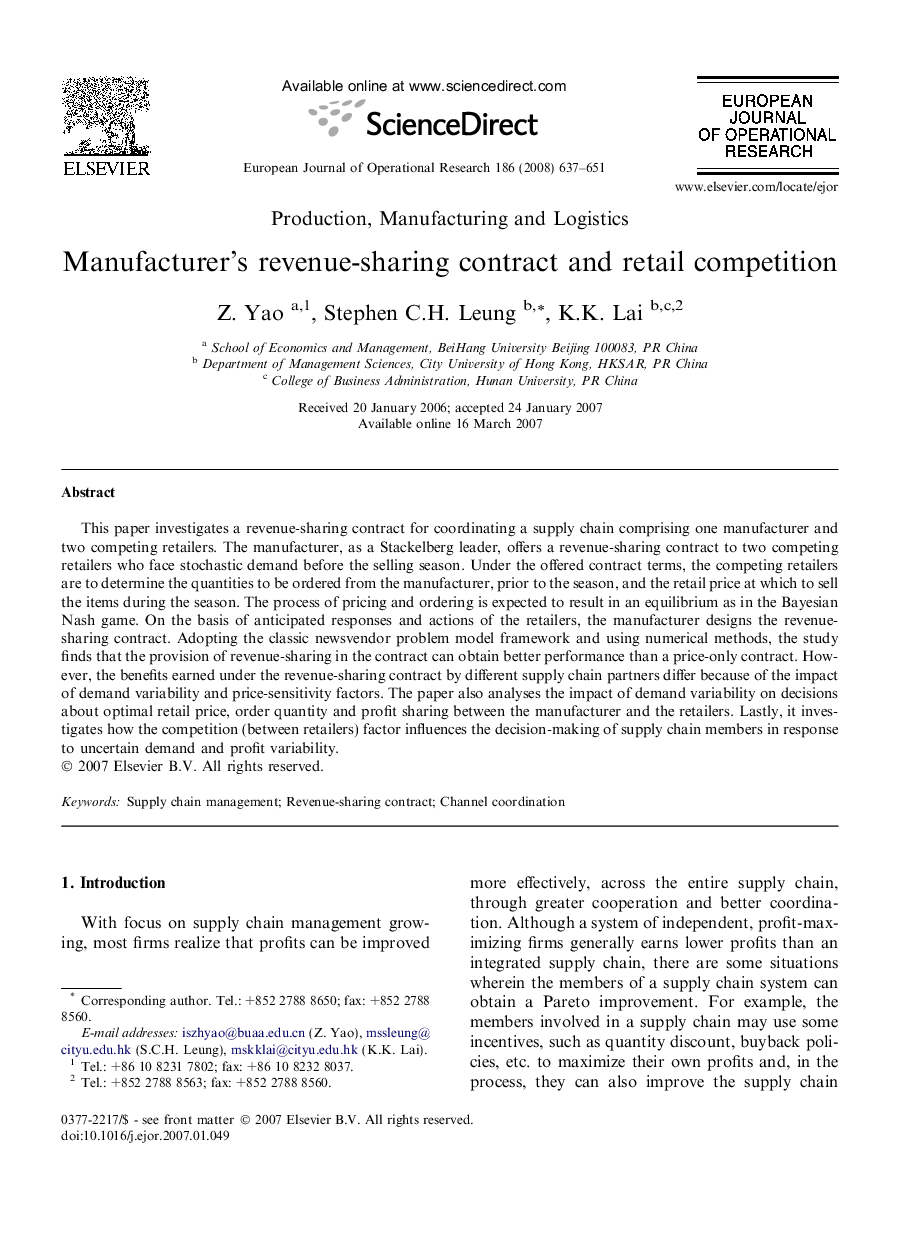| Article ID | Journal | Published Year | Pages | File Type |
|---|---|---|---|---|
| 477692 | European Journal of Operational Research | 2008 | 15 Pages |
This paper investigates a revenue-sharing contract for coordinating a supply chain comprising one manufacturer and two competing retailers. The manufacturer, as a Stackelberg leader, offers a revenue-sharing contract to two competing retailers who face stochastic demand before the selling season. Under the offered contract terms, the competing retailers are to determine the quantities to be ordered from the manufacturer, prior to the season, and the retail price at which to sell the items during the season. The process of pricing and ordering is expected to result in an equilibrium as in the Bayesian Nash game. On the basis of anticipated responses and actions of the retailers, the manufacturer designs the revenue-sharing contract. Adopting the classic newsvendor problem model framework and using numerical methods, the study finds that the provision of revenue-sharing in the contract can obtain better performance than a price-only contract. However, the benefits earned under the revenue-sharing contract by different supply chain partners differ because of the impact of demand variability and price-sensitivity factors. The paper also analyses the impact of demand variability on decisions about optimal retail price, order quantity and profit sharing between the manufacturer and the retailers. Lastly, it investigates how the competition (between retailers) factor influences the decision-making of supply chain members in response to uncertain demand and profit variability.
